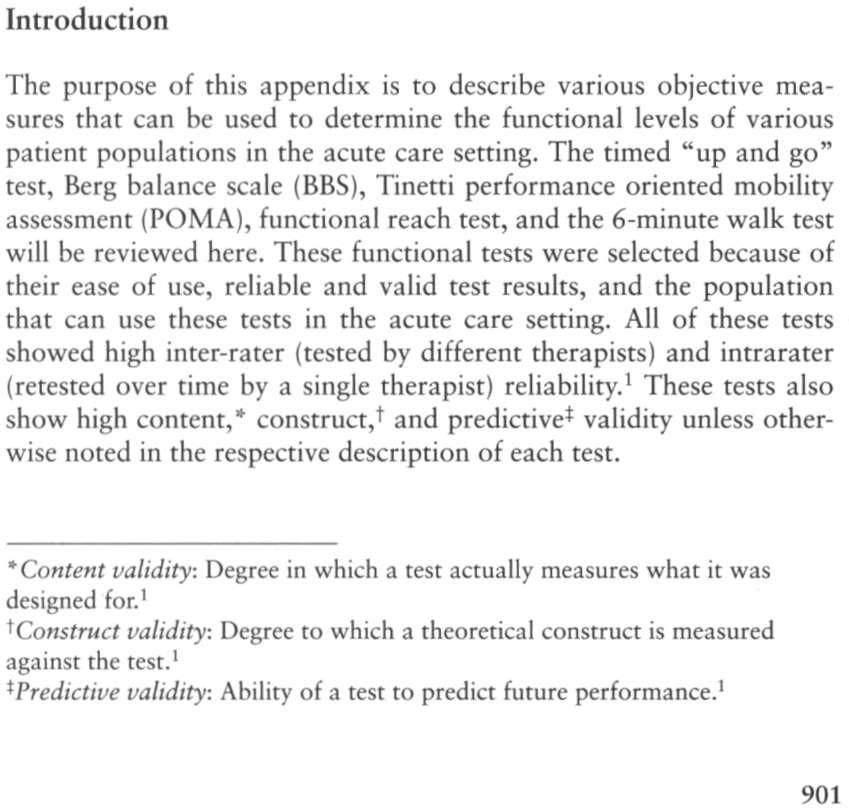i bc27f85be50b71b1 (282 page)
Read i bc27f85be50b71b1 Online
Authors: Unknown



898 AClITE CARE HA.NDBOOK FOR PHYSICAL THERA.PISTS
...... -
Adult
BIIIknII
liigh·Fowln'l position
Righi middle Iobf:
po:"IIm.OI' segment
ApkalliCgmCnU
RIp' upper lobe
anlCl'ior�1
,�
... ft ••
LeR I.I(lptf lobe
�-�
Silk Iyml! "'lib rillhl sick of
dw:sI: �Ievtlu:d on pilloloo-s
L�R II['IIX'r Iobe
Silk 1)'lIl1! with Ieft.1Ik of
Right lower lobe
pos&mor sqpnenl
dlesl �Ir.ltcd on PIllows
-�
Righi middle �
1luee-fQlUth, Slqll!le "",IIK1n
anterior segment
with �I [lillI! In
TrcnddmbwJ's posiuon
�
Figure VUl-1. Positions (or postural drai"age. (With permission from PA Potter, AG Perry. Ftmdamelllals of Nllrsing (5th ed{. Sr. LOllis: Mosby, 2001; 1165.)


APPENDIX VIII: POsnJRAL DRAINAGE
899
•
Recent esophageal surgery
• Significantly distended abdomen
• Orthopnea
The comraindications for reverse Trendelenburg (placing the head
of the bed in an upward position) include the following3:
• Hypotension
• Use of vasoactive medications
The following are contraindications for postural drainage in conjunction with other bronchopulmonary hygiene techniques.'" [n some conditions, such as pleural effusion, postural drainage in the upright
sitting position may be acceptable. The lise of postural drainage with or
withollt other bronchopllimonary techniqlles should be considered on
the severity of the condition all all individual patient basis.
• Acute hemorrhage with hemodynamic instability
• Acute hemoptysis
• Unstabilized head or neck injury
• Intracranial pressure greater than 20 mm Hg
• Unstable cardiac dysrhythmia
• Bronchopleural fistula
• Large pleural effusion
• Unstable pneumothorax
• Subcutaneous emphysema (air in the subcutaneous tissue)
• Pulmonary embolism
•
Pulmonary edema or congestive heart failure
Physical therapy considerations and clinical tips for the use of postural drainage include the following:
• The timing of postural drainage after pain medication or bronchodilators can improve its effectiveness.


900 ACUTE CARE HANDBOOK FOR PHYSICAL TI-IERAI)ISTS
•
Monitor vital signs with position changes to evaluate patient
tolerance, especially for critically ill patients or those status post
cardiothoracic surgery with a history of blood pressure and hcart
rate changes when turned ro one side.
•
Modify the position of the patient if anxiety, pain, skin breakdown, abnormal posture, decreased range of motion, or positioning restrictions exist.
• To improve patient tolerance of postural drainage, consider
modifying the time spent in each position, the angle of rhe bed, or
patient position.
•
Provide time for the patient to rest or become acclimated to
position changes if necessary.
• Use pillows, blankers, foam rolls, or wedges to maximize comfort or provide pressure relief.
•
Sed mobility training can be incorporared during position
changes wirh parients who have decreased independence with roiling or supine-ro-sit transfers.
• Have a good working knowledge of the controls on the patient'S
bed that are needed to position rhe patient for postural drainage.
Each bed model, especially pressure relief or roraring beds, has different comrols, locks, and alarms.
References
1. Starr jA. Chronic Pulmonary Dysfunction. In B O'Sullivan, TJ Schmitz
(cds), Physical Rehabilitation: Assessment and Treatment. Philadelphia:
FA Davis, 2001 ;46l.
2. Downs AM. Physiological Basis for Airway Clearance Techniques. In 0
Frownfelter, E Dean (eds), Principles and Practice of C::ardiopulmonary
Physical Therapy (3rd cd). Sr. Louis: Mosby, 1996;330-331.
3. Hess DR, Branson RD. Chest Physiotherapy, Incentive Spirometry,
inrerminenr Positive-Pressure Breathing, Secretion Clearance, and
Inspiratory Muscle Training. In RD Branson, DR Hess, RL Chatburn
(eds), Respiratory Care Equipment (2nd ed). Philadelphia: Lippincorr
Williams & Wilkins, 1999;340.


